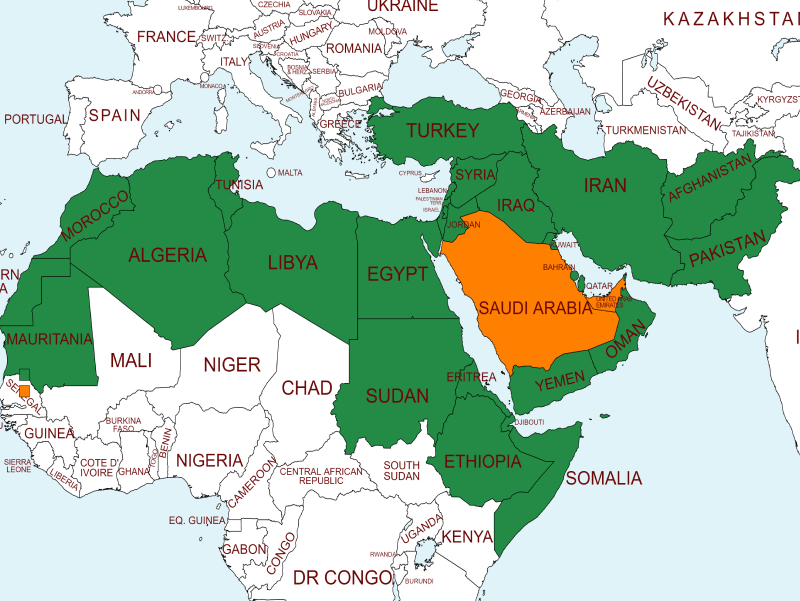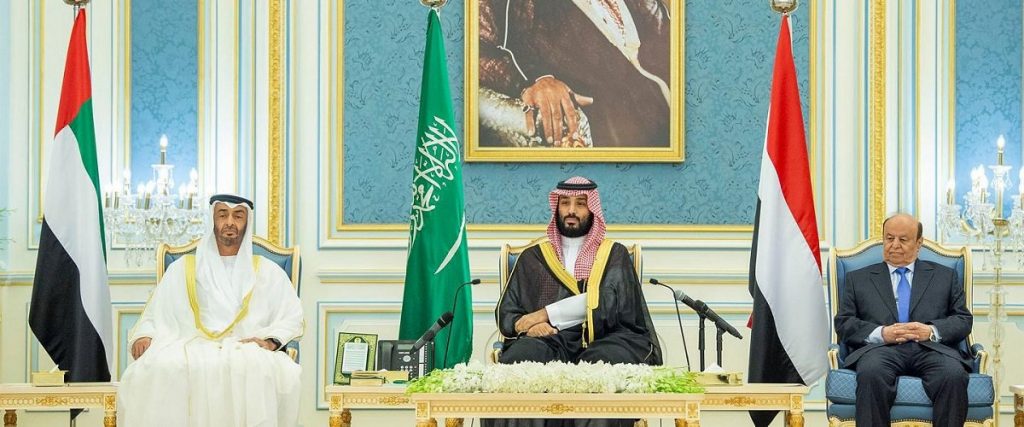
Saudi Arabia and the United Arab Emirates (UAE) have practically nurtured friendly bilateral relations throughout their history. The UAE gained independence from the United Kingdom in 1971 and since has traditionally harmonized its policy with the strategy of Saudi Arabia. Their alliance was most obvious during the Arab Spring when both countries supported the monarchist regimes in the fight against the Muslim Brotherhood, and also during the Qatar diplomatic crisis (2017-2021). Saudi Arabia has been trying to impose itself as a regional leader for decades, and to a large extent, it is. However, some of the latest moves by the Emirates indicate it is increasingly striving for a greater degree of autonomy in the Arab world. Consequently, in recent years three issues have significantly undermined the decade-long alliance - the Yemeni Civil War, relations with Israel, and the oil market.
The current president of Yemen Abdrabbuh Mansur Hadi won during the 2012 elections as the only candidate. His campaign was supported by Saudi Arabia which resulted in Iran's interference in Yemeni internal affairs. The Houthi movement from the north of the country was dissatisfied with Hadi's rule and rebelled in mid-2014 with the support of Iran. Mass protests ended with the Houthis taking power and forcing President Hadi to temporarily move the capital from Sana'a to Aden.
Hadi turned for help to the Saudis, who in 2015 launched a military intervention aimed at suppressing the Houthis. Thus, Yemen turned into a proxy territory where two regional rivals, Saudi Arabia and Iran, were at odds. From the very beginning of the intervention, the main ally of Saudi Arabia was the United Arab Emirates. Although both Riyadh and Abu Dhabi fought on the side of President Hadi, they entered the war because of different interests.

The UAE has supported separatist forces from the south of the country seeking the secession of southern Yemen, not only to secure access to oil resources but also to take control over the sea routes in the Gulf of Aden. On the other hand, Saudi Arabia got involved in the war to prevent the spread of Iranian influence on the Arabian Peninsula. The Houthis are Zaydites, a Shiite sect, and that naturally places them among those supported by the largest Shiite state, Iran. Oppositely, the dominant force of the Sunni branch of Islam is Saudi Arabia. With that in mind, we can conclude that Saudi Arabia got involved in the civil war in Yemen for both political and religious reasons.
In mid-2019, the UAE decided to withdraw its forces from the war in Yemen. Some sources say the departure came as a result of fears of retaliation from Iran. However, the reality is that the UAE has been advocating for a diplomatic solution since the beginning of the intervention, while the Saudis have insisted on the use of force.
The Emirates also wanted to avoid being condemned by the United Nations and the international community as much as possible for the humanitarian catastrophe in Yemen. Due to the coronavirus pandemic, Saudi Arabia declared a truce in Yemen. It remains to be seen whether the war will continue after the pandemic, or whether Riyadh will use the mentioned truce to withdraw from the war in which it achieved almost nothing.
The intolerance between Israel and the Arab countries has been present for decades. It can be said that this is one of the hot topics in the MENA region. Nevertheless, in August 2020, Israel and the UAE, with the mediation of the United States, signed a document on the normalization of relations. Although the US hoped that the signing could be trilateral with Saudi Arabia as well, that did not happen. As the Emirates was the first Gulf state to normalize relations with Israel, the reaction of Riyadh was eagerly awaited.
However, the Minister of Foreign Affairs of Saudi Arabia Faisal bin Farhan stated that his country will not proceed with the normalization of relations with Israel until peace is established between Israel and Palestine. Nevertheless, Saudi Arabia allowed Israeli and UAE airlines to use Saudi airspace for direct flights between the two countries.
It is difficult to predict at this moment whether the issue of normalization of relations with Israel will cause a new dispute. By signing the agreement, the UAE has certainly increased the pressure on Saudi Arabia to do the same. Therefore, we can consider this a sure indicator that the UAE aspires to the position of a new leader in the region.
At the beginning of July this year, at the meeting of OPEC+ countries, the latest conflict between the UAE and Saudi Arabia took place. As the largest oil producer within the Organization of the Petroleum Exporting Countries (OPEC), Saudi Arabia has long had the main say. However, the Emirates is trying to position itself as a new regional power, so they are increasingly pursuing a separate policy. Namely, the UAE wants to increase oil production from 3.16 to 3.65 million barrels of oil per day. Abu Dhabi is striving to increase production to lower the price of crude oil and to make a profit as quickly as possible.
Contrastingly, Saudi Arabia wants to reduce production to increase the price of crude oil. Given that the Saudis and the Russians have been controlling the price of oil on their own for years, it is clear that the Emirates are now joining the race. The Saudi-Emirati dispute was partially resolved by Riyadh allowing the requested increase in oil production, but only from April 2022 forward.

The issue of tourism is also linked to the aspiration to increase oil production. Namely, due to the coronavirus pandemic, the tourism in the United Arab Emirates suffered a serious blow. That is why Abu Dhabi is trying to produce as much oil as possible in the shortest possible time – to overcome the financial problems it has fallen into due to the insufficient inflow of funds from tourism.
However, there is also a third party - Qatar. The World Cup will be held in Doha at the end of 2022 and that it will contribute to the development of Qatar, instead of UAE tourism. For this reason, the authorities in Abu Dhabi were against lifting sanctions against Doha. In the end, the sanctions were lifted at the initiative of Saudi Arabia earlier this year despite the UAE's disapproval. The lifting of the blockade certainly has little to do with oil, much less with football, but it will certainly not contribute to the financial recovery of the Emirates.
To make matters worse for the UAE, Saudi Arabia also banned travel to and from the Emirates in early July this year to curb the spread of the coronavirus pandemic.
The longevity of the alliance between Saudi Arabia and the United Arab Emirates is indisputable. However, considering everything mentioned above, as well as the issue of differences in attitudes towards other states – especially Turkey – indicates that there is still some contradiction in the foreign policies of these two countries. The de facto ruler of the Emirates Mohammed bin Zayed is often presented in the media as the mentor of Saudi Crown Prince Mohammed bin Salman. This certainly does not guarantee the continuation of their alliance. Can one even think that this mentorship is exactly in line with the national policy of the UAE, and against Saudi Arabia?
Translation: Tamara Djordjevic
Proofreading: Nikola Petrovic


